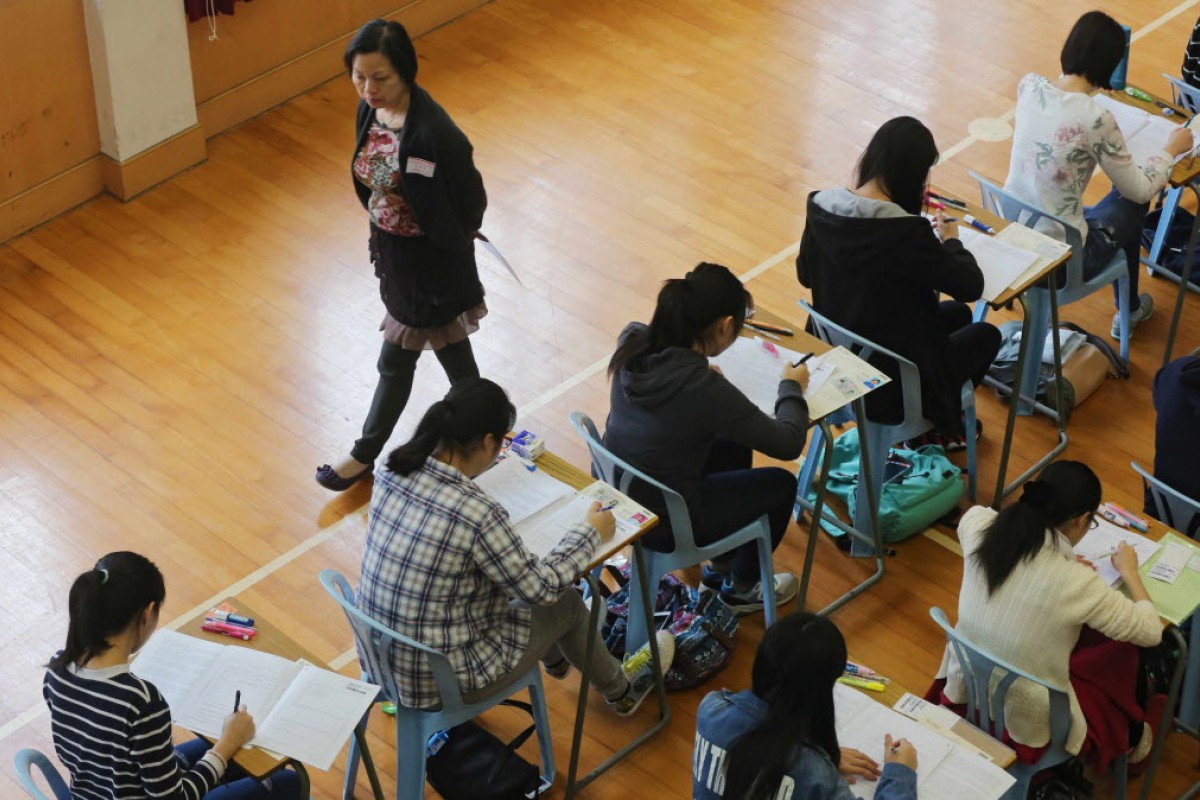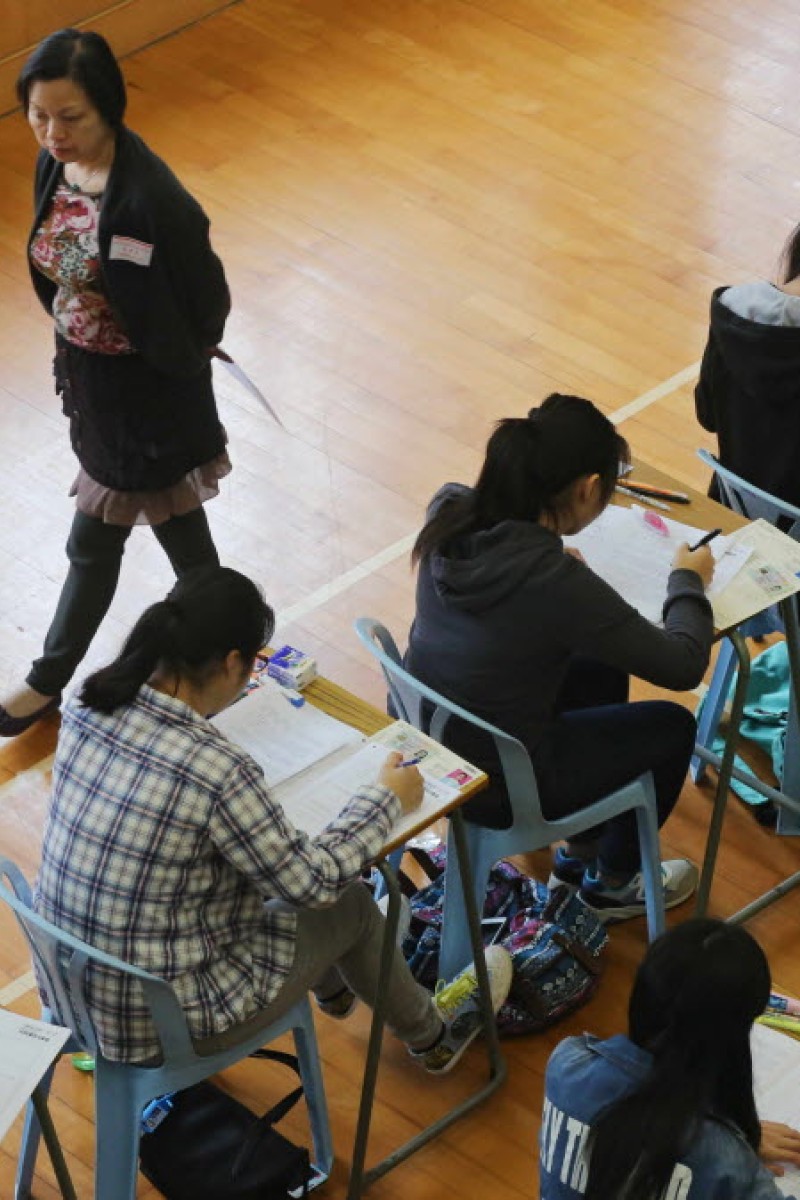 Students sitting the English HKDSE on Friday reported it was easier than 2015.
Students sitting the English HKDSE on Friday reported it was easier than 2015.This year’s DSE English reading and writing papers appear to be easier than last year’s, say educators and students.
Current DSE candidate Joy Pamnani, 17, from PLK Ngan Po Ling College, said the reading paper was easier, as the topic was related to students’ daily life. “Last year the paper was about the personality of Korean people which was a bit strange,” she said. “But this year the theme was related to daily life and current affairs. Questions were very straightforward. There were only a few words I‘d never come across but from the context I could guess their meanings.”
English teacher Ansley Lee Kwan-ting from Kiangsu Chekiang College the reading paper was easier to understand, but what challenged students most was time management. Students were given a number of small texts, different from last year when they got one long article in each part. “Different small texts didn’t carry heavy weightings which could be a bit tricky,” she said.
Another Form Six student, Phoebe Chung Wai-yan, 17, from St Clare’s Girls’ Schools agreed. She said it was time-consuming trying to comprehend a lot of small texts with different themes in a limited time.
Joy said despite the lower percentage of open-ended questions this year, questions on reading comprehension tested reasoning skills. She appreciated that B1 and B2 had the same themes, which was fairer for candidates. “B1 and B2 in previous years were given different topics. It could be unfair for students whose English proficiency was low but they were familiar with the topics.”
But on the writing exam, Joy complained that the Part A question was a boring topic that asked candidates to write a speech on how students should behave and enjoy life in school.
“In English, you should be demonstrating creativity. I don’t think this type of question really helps,” she said.
Lee said the writing paper in Part B tended to be liberal studies type questions. “In previous years, electives like workplace communication and poems and songs were not popular. But the questions this year seemed to ask about their current affairs or social issues,” she says. “You don’t need to focus on one particular elective as you can answer any elective questions. For example, the question from poems and songs asks you to express your opinion on a songwriter’s statement. It is asking you to cite some examples based on your own experience. A lot of specific terms related to poems and songs are not likely to be required.”
Joy preferred the writing questions for Part B because they tested students’ reasoning skills and personal views. “I chose the social issue question which was about local culture,” she said. “A lot of social issues covered education, health care, and social welfare, so something like culture, which we never really discussed before, could show our creative use of language.”
